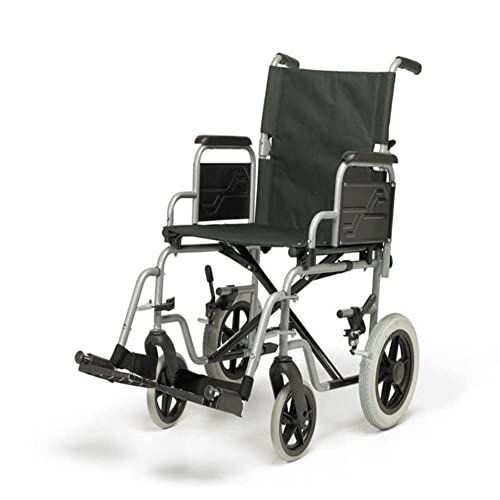
disabled_scooters_near_me5795
About disabled_scooters_near_me5795
Need Inspiration? Look Up Scooters For Sale Near Me
Exploring Disability Scooters for Sale Near Me: A Comprehensive Guide
In the modern-day world, mobility help have actually become increasingly sophisticated and accessible, improving the lifestyle for individuals with specials needs. Amongst these help, disability scooters stick out as a flexible and efficient service, providing freedom and self-reliance to those who may find traditional strolling help limiting. This short article explores the world of Disability Scooters For Sale Near Me scooters, exploring how they work, the advantages they provide, and where to discover them for sale near you.
What Are Disability Scooters?
Disability scooters, likewise referred to as mobility scooters or electric scooters, are motorized lorries designed to help people with mobility issues. These scooters are normally equipped with a seat, handlebars for steering, and a variety of functions that enhance convenience and security. They are powered by rechargeable batteries and can be used both inside and outdoors, depending upon the design.
Types of Disability Scooters
-
Three-Wheeled Scooters
- Pros: More maneuverable in tight areas, lighter and typically simpler to transfer.
- Cons: Less steady on irregular surface areas, may feel less safe for some users.
-
Four-Wheeled Scooters
- Pros: Greater stability and balance, much better for outdoor usage, particularly on rough terrain.
- Cons: Less maneuverable in tight areas, typically heavier and more difficult to transfer.
-
Travel Scooters
- Pros: Designed for easy disassembly, making them ideal for travel.
- Cons: May have a much shorter variety and lower speed compared to full-sized designs.
-
Durable Scooters
- Pros: Built to support greater weight capacities, frequently more resilient and tough.
- Cons: Heavier and less portable, may require more upkeep.
-
Standing Scooters
- Pros: Provide an option for users who choose or need to stand.
- Cons: Less typical, might not be as comfy for long-term usage.
Benefits of Disability Scooters
-
Improved Mobility
- Disability scooters enable users to take a trip longer ranges and navigate various environments with ease, from grocery stores to outdoor parks.
-
Increased Independence
- By decreasing the need for help, these scooters empower users to maintain their independence and perform daily activities more comfortably.
-
Enhanced Quality of Life
- Scooters can considerably boost social and leisure activities, enabling users to take part in neighborhood events and maintain a more active lifestyle.
-
Affordable
- Compared to other mobility help like power wheelchairs, scooters are typically more economical and have lower upkeep expenses.
-
Personalized
- Numerous scooters come with alternatives for customization, including adjustable seats, speed settings, and additional safety functions.
Where to Find Disability Scooters for Sale Near Me
When looking for disability scooters for sale, there are several choices offered to guarantee you find the best fit for your needs.
-
Local Mobility Aid Stores

- Pros: Opportunity to check drive and see the scooters personally, knowledgeable staff for customized advice.
- Cons: Limited choice compared to online stores, might be more costly due to overhead costs.
-
Online Retailers
- Pros: Wide range of designs and brands, typically more competitive rates, convenience of shopping from home.
- Cons: Can not evaluate drive before acquiring, possible shipping costs and delays.
-
Specialized Dealers
- Pros: Specialized in mobility help, often provide prolonged guarantees and financing choices.
- Cons: May be more expensive, less physical places.
-
Second-Hand Markets
- Pros: Affordable choices, chance to examine and evaluate the scooter before buying.
- Cons: Limited warranty, might require maintenance or repair work.
What to Consider When Buying a Disability Scooter
-
User Needs and Abilities
- Physical Condition: Consider the user’s strength, mastery, and stability.
- Way of life: Think about where the scooter will be used most frequently (indoors, outdoors, both).
-
Scooter Features
- Variety and Battery Life: Ensure the scooter can manage the distances you require to travel.
- Speed and Maneuverability: Choose a scooter that matches your speed choices and the spaces you navigate.
- Weight Capacity: Verify that the scooter can support the user’s weight.
- Storage and Transport: If you require to transport the scooter, try to find models that are light-weight or easy to take apart.
-
Safety and Comfort
- Braking System: Check for reliable and responsive brakes.
- Seating: Opt for a comfortable and adjustable seat.
- Lighting and Accessories: Consider functions like headlights, turn signals, and baskets for included convenience.
-
Budget plan and Financing
- Preliminary Cost: Compare prices from different sellers.
- Upkeep Costs: Factor in the cost of batteries, repairs, and routine maintenance.
- Financing Options: Some dealers offer funding or lease-to-own programs.
-
Guarantee and Support
- Guarantee: Look for a thorough service warranty that covers both parts and labor.
- Client Support: Ensure the retailer offers trusted customer support and assistance.
Frequently Asked Questions About Disability Scooters
Q: Are disability scooters covered by insurance coverage?
- A: Many insurance plan, including Medicare, can cover a portion of the expense of a disability scooter. Nevertheless, coverage varies, so it’s necessary to talk to your company for particular details and requirements.
Q: How often do I need to charge the battery?
- A: The frequency of battery charging depends upon the design and usage. Normally, you must charge the battery after each usage or a minimum of when a week if the scooter is not used everyday.
Q: Can I use a disability scooter on mass transit?

- A: Yes, many disability scooters are designed to be portable and can be used on mass transit, such as buses and trains. However, it’s a great concept to examine the particular guidelines and policies of your local transit authority.
Q: Are there any age limitations for using disability scooters?
- A: There are no rigorous age restrictions, but users should be able to operate the scooter securely. Many scooters are developed for older adults, however they can be utilized by anyone who requires support with mobility.
Q: Can I customize a disability scooter to fit my specific requirements?
- A: Many scooters offer personalization choices, such as adjustable seats and speed settings. For more substantial adjustments, it’s best to seek advice from a professional mobility aid provider.
Tips for Buying a Disability Scooter
-
Research Thoroughly
- Read Reviews: Look for evaluations from other users to get a sense of the scooter’s performance and dependability.
- Compare Models: Consider various models and brands to discover the one that best satisfies your requirements.
-
Test Drive Before Buying
- If possible, test drive the scooter to guarantee it feels comfortable and fulfills your requirements.
-
Request Professional Advice
- Consult with a health care company or mobility aid specialist to get tailored suggestions.
-
Look For Local Incentives
- Some local governments and companies use rewards or aids for buying disability scooters. Talk to your local disability services for additional information.
-
Think About Future Needs
- Think about any prospective modifications in your physical condition that might affect your scooter needs in the future.
Disability scooters are a valuable tool for improving mobility and self-reliance for people with specials needs. By considering the user’s needs, the functions of the scooter, and the offered alternatives for purchase, you can discover the best scooter to match your lifestyle. Whether you’re patronizing a local shop or searching online, taking the time to research and test drive various models will ensure you make a notified and helpful choice. With the ideal scooter, the world becomes a more accessible and pleasurable location.
Additional Resources
- Mobility Aid Providers: Check regional listings for suppliers focusing on disability scooters.
- Online Reviews: Websites like Consumer Reports and mobility help online forums use detailed evaluations and user feedback.
- Government Programs: Look into regional and nationwide programs that provide monetary support for mobility aids.
By exploring these resources and following the tips detailed in this post, you can confidently discover and acquire a disability scooter that meets your specific needs and improves your life.
No listing found.

